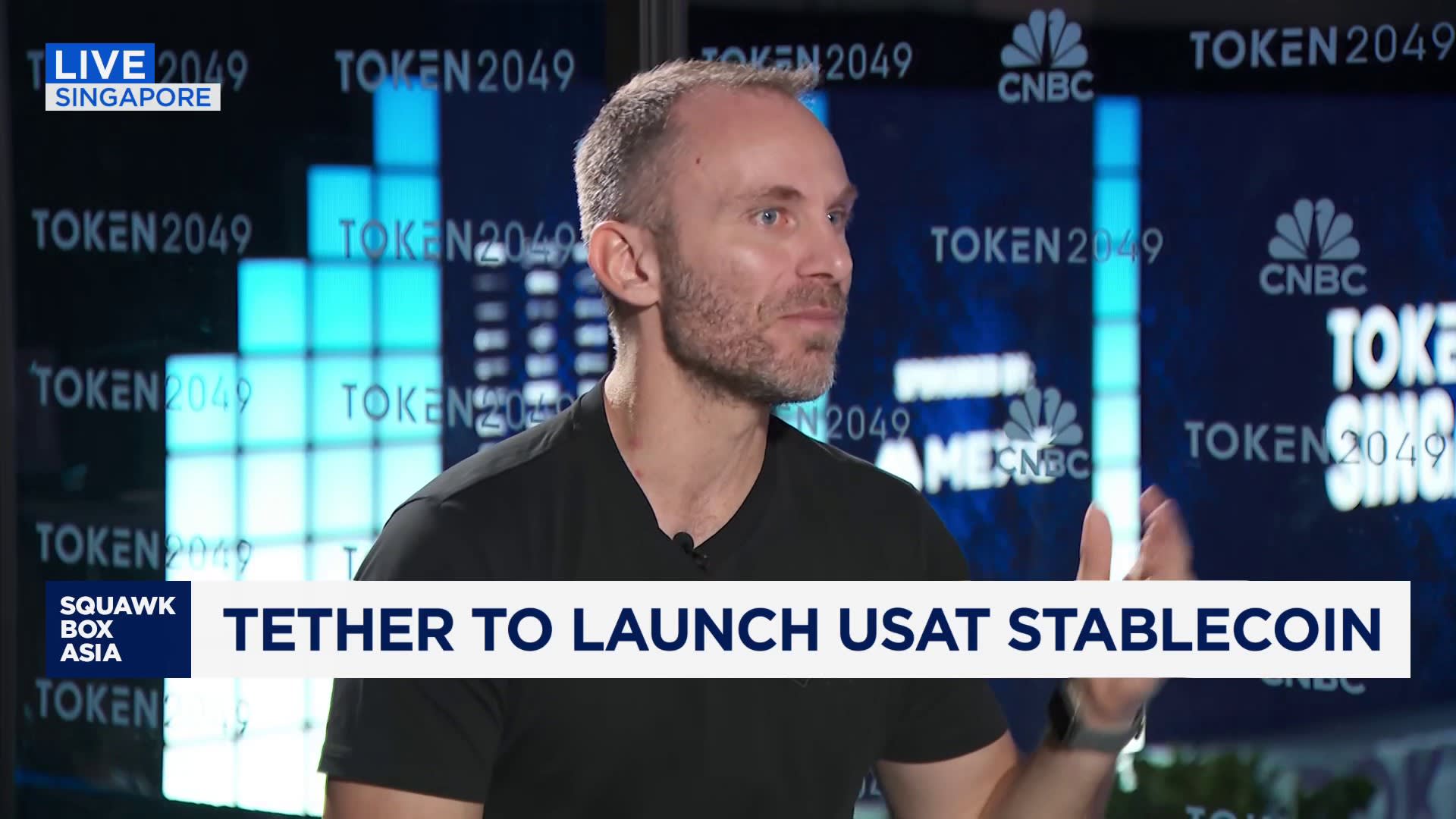Paolo Ardoino, the CEO of Tether, recently stated that the company’s valuation of **$500 billion** is “very reasonable,” suggesting that it could even be higher. Ardoino emphasized Tether’s commitment to serving the under-banked community, positioning the company as a competitor primarily to large remittance firms rather than traditional banks.
In an interview, Ardoino highlighted Tether’s goal of providing financial services to those who typically lack access. He pointed out that remittance companies, which often charge high fees for transferring money internationally, represent a significant challenge in the financial landscape. By offering alternatives, Tether aims to lower costs and improve accessibility for consumers.
Tether’s New Token Aims to Capture U.S. Market
Alongside discussing the company’s valuation, Ardoino announced the launch of Tether’s new token, **USAT**, designed specifically for the U.S. market. This token is part of Tether’s broader strategy to increase its footprint in the financial sector and provide innovative solutions to its users.
Ardoino explained that USAT is tailored to meet the needs of American consumers, responding to the growing demand for digital currencies. He noted that the introduction of this token aligns with Tether’s mission and demonstrates its adaptability in a rapidly changing market.
The launch of USAT is anticipated to further strengthen Tether’s position within the competitive landscape of digital currencies and blockchain technology. As traditional financial institutions face scrutiny over fees and accessibility, Tether is poised to capitalize on these gaps by offering more user-friendly alternatives.
Ardoino’s remarks reflect a broader trend in the financial sector, where companies are increasingly focusing on inclusivity and innovation. He stated, “We believe that our approach can significantly impact the under-banked community, which is often overlooked by conventional financial services.”
By positioning itself against established remittance companies, Tether aims to redefine how financial transactions are conducted, potentially changing the dynamics of the market. As the company navigates its growth trajectory, it remains committed to its core values of transparency and accessibility.
In summary, Tether’s CEO believes in the company’s robust valuation and future potential, especially with the introduction of USAT. As the market evolves, Tether’s initiatives may provide meaningful solutions for those traditionally underserved by financial systems, reaffirming its role as a significant player in the digital currency space.
